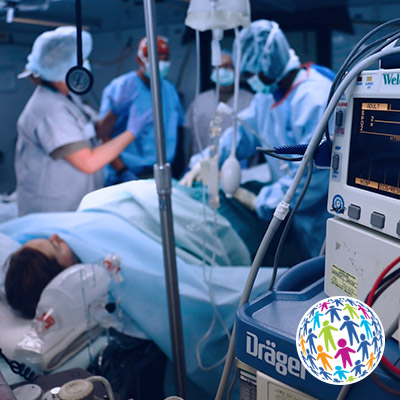General Surgery: Specialist General Surgery Part 2
$770.00
RAGCP ID:
CPD Points: 20
The course is designed to expand your knowledge and capabilities as a surgeon through a review of new developments, medical guidelines and therapeutic options including non-conventional approaches. Highly focused case-based reviews are designed to increase competency in the areas most covered.
Describe
Apply
Incorporate
Course Description
There are 17 lectures contained in this course:
- Burns and Basics of Plastic Surgery – Robert T. Grant, MD
- Orthopedic Surgery for the General Surgeon – Robert J. Strauch, MD
- Pediatric Surgery Part 1 & 2 – Steven Styllianos, MD
- What You Need to Know About Melanoma and Sarcoma – Bret Taback, MD
- Small Bowel – Anthony Vine, MD
- What the General Surgeon Needs to Know About the Lungs, Mediastinum, and Thoracoscopy – Mark D. Widmann, MD
- Operating Room Safety – Gregory F. Dakin, MD
- Anatomy that Matters (Even if you Never Operate in Those Areas) – Warren D. Widmann, MD, FACS
- Basics of Head and Neck Surgery for the Surgeons Who Operate on the Belly – Warren D. Widmann, MD, FACS
- Medical Ethics and the Government and the Surgeon – Warren D. Widmann, MD, FACS
- Principles of Anesthesia for the General Surgeon – Warren D. Widmann, MD, FACS
- Respiratory Physiology: Breathing is Not Enough – Warren D. Widmann, MD, FACS
- Surgical Infections – Warren D. Widmann, MD, FACS
- The Spleen and the Surgeon and Surgical Nutrition – Warren D. Widmann, MD, FACS
- Gastric Benign and Malignant – Yanghee Woo, MD
- Geriatric Surgery: Making Surgical Interventions in the Golden Years Safer – Michael M. Zenilman, MD
- Hernia – Linda Zhang, MD
What you will learn
Those who complete the entire program should be able to:
- Explain the epidemiology behind soft tissue sarcoma
- Recognise and apply new & evolving diagnostic and therapeutic interventions and their role in changing the classical approaches to problems in general surgery
- Describe the appropriate evaluation and management of both common and uncommon problems encountered in clinical practice
- Explain evidence-based general procedures in paediatric, thoracic, urologic, and orthopaedic surgery
- Discuss the patient safety systems in place in the operating theatre
- Explain the five key principles of governance and medical ethics

